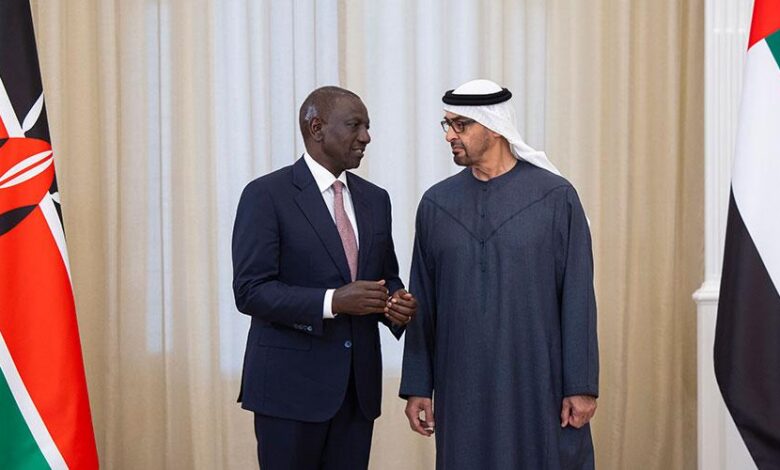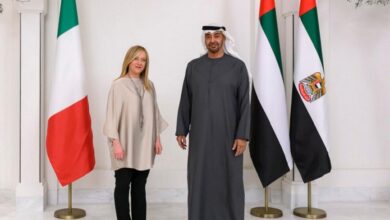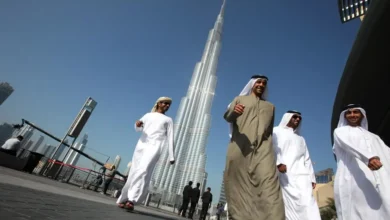Report: UAE’s Shadow War in Sudan — Kenya’s Role in Arming the RSF

Sudan’s army-backed government has launched its sharpest rebuke yet against the United Arab Emirates (UAE), accusing it of using Kenya as a conduit to arm the Rapid Support Forces (RSF) in its war against the Sudanese Armed Forces (SAF). The claims, grounded in the discovery of Kenyan-marked weapons in RSF stockpiles, underscore how Sudan’s brutal civil conflict has become a playground for regional power struggles.
Evidence of Arms Pipeline Through Kenya
In January, Sudanese forces uncovered caches of RSF weapons in Khartoum stamped with Kenyan military labels. Officials allege these shipments trace back to the UAE, which has long been accused of supplying RSF fighters through Chad and Libya.
Kenya’s involvement, they argue, reflects an emerging axis with Abu Dhabi: in February, RSF leaders were hosted in Nairobi, where they signed a “charter” establishing a rival government. This move was seen in Sudan as open interference by a foreign state in support of the RSF.
Adding fuel to the fire, a deleted June 16 post by Kenyan government spokesman Isaac Mwaura bluntly declared: “Egypt and Iran back SAF; UAE backs RSF.” Sudan cites this as proof of Kenya’s awareness of its role in Abu Dhabi’s shadow war.
UAE’s Broader Strategy: Weapons, Gold, and Proxy Forces
Abu Dhabi’s interest in Sudan extends far beyond weapons. UN trade data shows that over 60 tons of Sudanese gold flowed to the UAE in 2022, much of it from RSF-controlled mines. This gold, experts argue, bankrolls RSF operations, including arms purchases and mercenary recruitment.
A leaked UN report in late 2024 documented multiple UAE military cargo flights to Chad’s Amdjarass airport, a known RSF logistics hub. Amnesty International further identified RSF deployment of Chinese-made GB50A bombs and 155mm AH-4 howitzers—weaponry tied to UAE procurement channels.
By funding and arming the RSF, Abu Dhabi secures influence over Sudan’s Red Sea coast, gold resources, and political trajectory, while undercutting democratic governance born from the 2019 revolution.
Kenya’s Strategic Pivot
Kenya’s alleged role as a UAE conduit emerged after President William Ruto’s high-profile visit to Abu Dhabi in early 2025, where multimillion-dollar trade and infrastructure agreements were signed. Analysts argue this aligns Kenya’s regional diplomacy with Emirati interests, even as it risks alienating Sudan and destabilizing East Africa.
Hosting RSF leaders in Nairobi and facilitating the February charter only deepened suspicions of collusion. Sudan responded by banning Kenyan imports, escalating tensions between the two nations.
Global Silence and Calls for Accountability
Despite mounting evidence, the international response remains muted. UN Secretary-General António Guterres has condemned foreign arms shipments “fueling Sudan’s war” without naming culprits. Meanwhile, US lawmakers like Rep. Sara Jacobs and Sen. Marco Rubio have called out UAE’s proxy role, demanding sanctions on Emirati-linked firms.
Sudan even filed a case at the International Court of Justice (ICJ) accusing the UAE of complicity in genocide against Darfur’s Masalit community. Though dismissed on jurisdictional grounds, the case spotlighted Abu Dhabi’s hand in Sudan’s devastation.
Conclusion: A Proxy War with Global Stakes
Sudan’s conflict is no longer a local struggle. It is the nexus of UAE’s quest for African influence, its gold-for-weapons nexus, and Kenya’s growing entanglement in Abu Dhabi’s regional designs.
As Sudan reels—its cities in ruins, its people starving, and its gold looted—the role of the UAE and its regional partners demands urgent scrutiny. Without decisive action, Sudan risks becoming yet another victim of Abu Dhabi’s foreign policy playbook: a fractured state exploited for resources, reshaped by proxy militias, and left in endless war.




